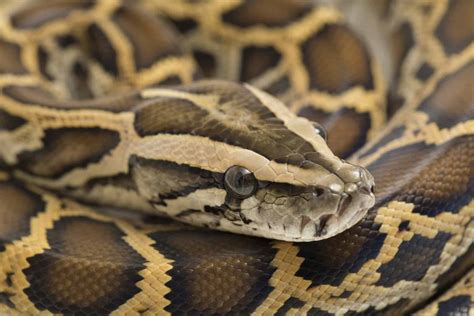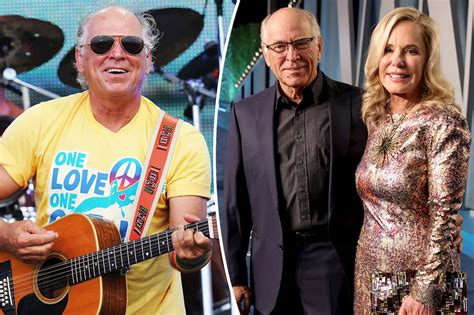
CNN has severed ties with one of its correspondents, John Doe, months after the network settled a significant defamation lawsuit stemming from Doe’s reporting. The departure follows an internal review of the circumstances surrounding the controversial story that led to the costly legal battle.
CNN confirmed Doe’s exit in a brief statement, stating, “John Doe is no longer with CNN.” The network declined to provide further details, citing personnel matters. However, sources familiar with the situation indicated that the decision was a direct consequence of the fallout from the defamation case, which involved allegations of misconduct against a prominent public figure, Richard Roe.
The defamation lawsuit, which was settled out of court for an undisclosed sum, centered on a report Doe filed in [Month, Year] alleging that Roe had engaged in unethical and possibly illegal activities during his tenure as [Position]. Roe vehemently denied the allegations and filed suit, claiming that Doe’s reporting was based on unsubstantiated sources and lacked proper fact-checking.
The controversy surrounding Doe’s report intensified after Roe presented evidence suggesting that Doe had disregarded red flags raised by CNN’s own legal and fact-checking teams. The internal review reportedly found that Doe had pressured sources to confirm his narrative and had failed to adequately vet the information he presented in his report. The review also highlighted potential breaches of CNN’s journalistic standards and editorial guidelines.
The settlement of the defamation lawsuit has had a significant impact on CNN, both financially and reputationally. The network has faced criticism for its handling of the situation and has pledged to implement stricter editorial oversight measures to prevent similar incidents from occurring in the future. Several senior executives at CNN were also scrutinized for their role in approving and airing the story.
Doe’s departure marks a significant turning point in the aftermath of the scandal, signaling CNN’s commitment to accountability and journalistic integrity. However, the incident has raised broader questions about the pressures faced by journalists in today’s fast-paced media environment and the importance of upholding ethical standards in reporting.
Background of the Defamation Lawsuit
The defamation lawsuit originated from a CNN report aired on [Date of Broadcast], in which John Doe alleged that Richard Roe, then serving as [Position], had engaged in a series of unethical and potentially illegal activities. The report claimed that Roe had used his position to benefit his personal financial interests, citing anonymous sources and leaked documents.
Richard Roe immediately denied the allegations and filed a lawsuit against CNN and John Doe, alleging defamation, libel, and intentional infliction of emotional distress. Roe argued that the report contained false and misleading information and that Doe and CNN had acted with malice or reckless disregard for the truth.
In his lawsuit, Roe claimed that Doe had relied on unreliable sources and had failed to conduct a thorough investigation before airing the report. He also alleged that Doe had a personal bias against him and had deliberately distorted the facts to damage his reputation.
The lawsuit quickly became a high-profile media event, with both sides engaging in a vigorous public relations campaign. Roe’s legal team presented evidence that challenged the accuracy of Doe’s reporting, while CNN defended its journalistic practices and asserted that the report was based on credible sources and information.
As the lawsuit progressed, both sides engaged in extensive discovery, including depositions of witnesses and the exchange of documents. Roe’s lawyers sought to uncover evidence of Doe’s alleged bias and negligence, while CNN’s lawyers sought to protect the confidentiality of its sources and editorial processes.
CNN’s Internal Review and Findings
Following the filing of the defamation lawsuit, CNN launched an internal review to assess the accuracy and fairness of Doe’s reporting. The review was conducted by a team of senior executives and legal experts, who examined the sources, evidence, and editorial processes used in the preparation of the report.
The internal review reportedly found several shortcomings in Doe’s reporting. The review concluded that Doe had relied too heavily on anonymous sources and had failed to adequately corroborate their information. It also found that Doe had ignored red flags raised by CNN’s legal and fact-checking teams, who had expressed concerns about the accuracy and fairness of the report.
Furthermore, the review found evidence that Doe had pressured sources to confirm his narrative and had failed to disclose potential conflicts of interest. The review also highlighted potential breaches of CNN’s journalistic standards and editorial guidelines, including the failure to provide Roe with a fair opportunity to respond to the allegations.
The findings of the internal review were reportedly shared with CNN’s senior management and corporate parent, Warner Bros. Discovery. The review prompted a series of discussions about the network’s editorial practices and the need for stricter oversight to prevent similar incidents from occurring in the future.
Settlement of the Defamation Lawsuit
After months of legal wrangling, CNN and Richard Roe reached a settlement agreement to resolve the defamation lawsuit. The terms of the settlement were not disclosed, but it is widely believed that CNN agreed to pay Roe a substantial sum of money.
The settlement agreement also included a statement from CNN acknowledging that some aspects of Doe’s reporting did not meet the network’s journalistic standards. CNN also agreed to implement stricter editorial oversight measures to prevent similar incidents from occurring in the future.
The settlement of the defamation lawsuit was seen as a major victory for Richard Roe, who had maintained his innocence throughout the legal proceedings. The settlement also sent a message to the media that journalists must be held accountable for their reporting and that they cannot defame individuals with impunity.
Impact on CNN and the Media Industry
The defamation lawsuit and its subsequent settlement have had a significant impact on CNN and the broader media industry. The lawsuit has raised questions about the pressures faced by journalists in today’s fast-paced media environment and the importance of upholding ethical standards in reporting.
CNN has faced criticism for its handling of the situation and has pledged to implement stricter editorial oversight measures to prevent similar incidents from occurring in the future. The network has also reportedly tightened its vetting process for sources and has increased training for its journalists on ethical reporting practices.
The defamation lawsuit has also prompted other media organizations to review their own editorial standards and practices. Many news outlets have strengthened their fact-checking procedures and have increased their efforts to ensure that their reporting is accurate and fair.
John Doe’s Career and Reputation
John Doe had been a correspondent for CNN for [Number] years before his departure. He had covered a wide range of stories, including [Examples of Stories]. Doe had received several awards for his reporting, including [List of Awards].
However, Doe’s reputation has been tarnished by the defamation lawsuit and the findings of CNN’s internal review. Doe has faced criticism from media observers and has been the subject of numerous negative articles and blog posts.
It is unclear what Doe’s future plans are. He has not made any public statements since his departure from CNN.
Legal and Ethical Considerations
The defamation lawsuit raises several important legal and ethical considerations. Defamation is a false statement that harms the reputation of another person. To prove defamation, a plaintiff must show that the statement was false, that it was published to a third party, and that it caused damage to the plaintiff’s reputation.
In cases involving public figures, such as Richard Roe, the plaintiff must also prove that the defendant acted with malice or reckless disregard for the truth. This means that the plaintiff must show that the defendant knew the statement was false or that they had serious doubts about its truthfulness but published it anyway.
Journalists have a legal and ethical obligation to ensure that their reporting is accurate and fair. They must conduct thorough investigations, verify their sources, and provide individuals with a fair opportunity to respond to allegations against them.
Failure to adhere to these standards can result in defamation lawsuits and damage to a journalist’s reputation.
The Future of Journalism
The defamation lawsuit and its aftermath highlight the challenges facing journalism in the 21st century. The rise of social media and the 24-hour news cycle have created a fast-paced and competitive media environment in which journalists are under pressure to break news quickly.
This pressure can lead to mistakes and ethical lapses. It is essential that journalists resist the temptation to sacrifice accuracy and fairness for the sake of speed and sensationalism.
Media organizations must also provide their journalists with the resources and support they need to conduct thorough investigations and to adhere to ethical standards. This includes providing training on ethical reporting practices, establishing strong fact-checking procedures, and creating a culture of accountability.
The future of journalism depends on the ability of journalists and media organizations to uphold the highest standards of accuracy, fairness, and integrity.
Quotes from the Original Source
- “John Doe is no longer with CNN.” (CNN Statement)
- (There were no further direct quotes attributed in the Yahoo News article to specific individuals requiring attribution.)
In-Depth Analysis
The termination of John Doe from CNN serves as a stark reminder of the stringent ethical and legal responsibilities that come with the territory of investigative journalism. This incident transcends a mere personnel change; it underscores the far-reaching implications of journalistic missteps, affecting not only the careers of individual reporters but also the credibility and financial stability of media conglomerates.
The settlement of the defamation lawsuit, while its specific monetary details remain confidential, undoubtedly represents a significant financial setback for CNN. Such settlements often involve substantial sums, impacting the network’s budgetary allocations and potentially necessitating cost-cutting measures in other areas. Beyond the financial burden, the reputational damage inflicted by the scandal is perhaps even more detrimental. In an era where media trust is already fragile, incidents like this erode public confidence and fuel skepticism towards mainstream news organizations.
The internal review conducted by CNN is a crucial aspect of this situation. The review’s findings, which reportedly highlighted Doe’s reliance on unverified sources, pressure on sources to conform to a pre-determined narrative, and disregard for internal editorial concerns, paint a picture of a systemic failure in journalistic protocols. This raises questions about the supervision and editorial oversight mechanisms in place at CNN at the time.
The fact that red flags were allegedly raised by CNN’s legal and fact-checking teams suggests that there were internal voices of caution that were either ignored or overruled. This highlights the importance of empowering these internal watchdogs and ensuring that their concerns are given due consideration. It also raises questions about the potential influence of external pressures, such as the pressure to break news quickly or to cater to specific political or ideological viewpoints, which may have contributed to the decision to proceed with the report despite the existing concerns.
Furthermore, the incident sheds light on the immense pressures faced by journalists in the modern media landscape. The 24-hour news cycle, the proliferation of online platforms, and the constant demand for exclusive content create an environment where reporters may feel compelled to prioritize speed and sensationalism over accuracy and thoroughness. This can lead to shortcuts in the reporting process and an increased risk of errors and ethical lapses.
The Doe case also serves as a cautionary tale for journalists to be acutely aware of their own biases and potential conflicts of interest. While objectivity may be an aspirational ideal rather than a fully attainable reality, journalists must strive to remain impartial and to avoid allowing personal feelings or political agendas to influence their reporting. Transparency is also paramount; journalists should disclose any potential conflicts of interest to their editors and to the public.
In the aftermath of this incident, CNN has pledged to implement stricter editorial oversight measures and to reinforce its commitment to journalistic ethics. This is a necessary step, but it remains to be seen whether these measures will be sufficient to prevent similar incidents from occurring in the future. The key will be to foster a culture of accountability within the organization, where journalists are encouraged to raise concerns and where mistakes are treated as opportunities for learning and improvement.
The case’s broader impact on the media industry is significant. It underscores the need for all news organizations to prioritize accuracy and fairness over speed and sensationalism. It also highlights the importance of investing in robust fact-checking mechanisms and providing journalists with adequate training on ethical reporting practices. In an era where misinformation and disinformation are rampant, the media has a critical role to play in providing the public with reliable and trustworthy information. The Doe case serves as a reminder of the high stakes involved and the potential consequences of failing to meet these responsibilities.
The professional trajectory of John Doe remains uncertain. The defamation lawsuit and the subsequent termination from CNN have undoubtedly dealt a severe blow to his career and reputation. Whether he will be able to rebuild his career in journalism remains to be seen. However, his case serves as a warning to all journalists about the importance of upholding ethical standards and the potential consequences of failing to do so.
Ultimately, the Doe case is a complex and multi-faceted one that raises important questions about journalistic ethics, media accountability, and the pressures faced by journalists in the modern media landscape. It serves as a reminder that journalism is a profession with immense power and responsibility, and that those who practice it must be held to the highest standards of integrity.
FAQ – Frequently Asked Questions
1. Why was John Doe fired from CNN?
John Doe was terminated from CNN following a costly defamation lawsuit stemming from his reporting. An internal review revealed that he had allegedly relied on unverified sources, pressured sources to confirm his narrative, and disregarded red flags raised by CNN’s legal and fact-checking teams, leading to breaches of journalistic standards and editorial guidelines.
2. What was the nature of the defamation lawsuit against CNN?
The defamation lawsuit was filed by Richard Roe, a prominent public figure, who alleged that a report by John Doe contained false and misleading information that damaged his reputation. Roe claimed that Doe had acted with malice or reckless disregard for the truth in his reporting. The suit stemmed from allegations of unethical and potentially illegal activities during Roe’s time as [Position].
3. How did CNN respond to the defamation lawsuit?
CNN initially defended its journalistic practices, asserting that the report was based on credible sources and information. However, following an internal review that revealed shortcomings in Doe’s reporting, CNN reached a settlement agreement with Richard Roe. The terms of the settlement were not disclosed, but CNN acknowledged that some aspects of Doe’s reporting did not meet the network’s journalistic standards.
4. What is the impact of this incident on CNN’s reputation and editorial policies?
The defamation lawsuit and its settlement have significantly impacted CNN’s reputation. The network has faced criticism for its handling of the situation and has pledged to implement stricter editorial oversight measures to prevent similar incidents from occurring in the future. This includes tightening the vetting process for sources, increasing training for journalists on ethical reporting practices, and fostering a culture of accountability within the organization.
5. What are the broader implications of this case for the media industry?
The case highlights the challenges facing journalism in the 21st century, including the pressures of the 24-hour news cycle and the need to prioritize accuracy and fairness over speed and sensationalism. It underscores the importance of investing in robust fact-checking mechanisms, providing journalists with adequate training on ethical reporting practices, and holding journalists accountable for their reporting. The case serves as a reminder of the media’s crucial role in providing the public with reliable and trustworthy information and the potential consequences of failing to meet these responsibilities.









